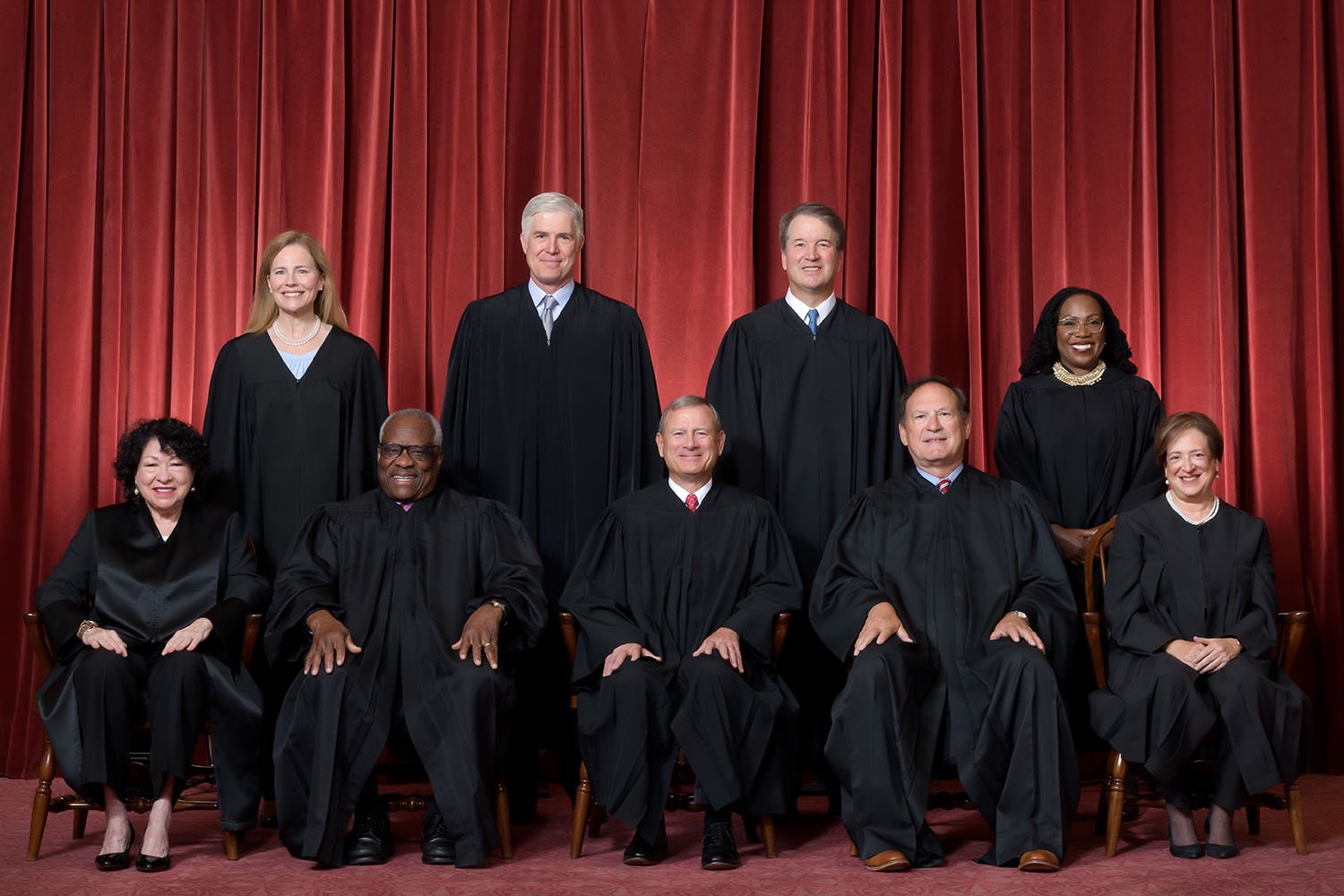(CN) — Like most institutions, the public's faith in the U.S. Supreme Court is at an all-time low. But a new paper points to evidence that public opinion of the high court is also becoming polarized along partisan lines — a trend that may have been triggered by the recent decision to overturn Roe v. Wade.
When asked "How much do you trust the Supreme Court to operate in the best interests of the American people?" only 53% said "a great deal" or "fair amount," down from nearly 70% in 2019. But there is now a stark contrast between those of each major political party. Only 39% of Democrats said they trust the court a great deal or fair amount, while 72% of Republicans did — a 43% gap.
The paper, "Politicians in robes: How a sharp right turn imperiled trust in the Supreme Court," published Friday in the journal Science Advances, argues Democrats and independents' trust in the court plunged suddenly after the opinion in Dobbs v. Jackson Women's Health Organization was leaked to Politico. That favorability then further plunged after the decision was officially released. Republicans' faith in the Supreme Court remained more or less the same, and may have even risen a little.
"Prior to 2022 and the Dobbs decision, there really wasn’t a partisan gap in the view of the court," said the paper's lead author Matthew Levendusky, a political scientist at the University of Pennsylvania. "There were small differences, but what you found in one year was reversed in the next. Since 2022, there's been a consistent pattern — Democrats are much less favorable to the court and Republicans are more favorable."
Democrats' decline in favorability was tracked by that of independents.
Dobbs effectively overturned Roe v. Wade, the landmark 1973 decision which granted the right to have an abortion nationwide, striking down numerous abortion bans in various states. The decision has become a fairly popular one. A July 2022 Pew Research poll, published weeks after Dobbs was handed down, found that 62% of Americans think abortion should be legal in all or most cases.
"A very strong majority of the public wanted to keep Roe in place," said Levendusky. Dobbs was "a counter majoritarian decision. The court was out of step with public opinion."

The court has made unpopular decisions before, and has made partisan decisions before — Bush v. Gore, in 2000, anointed George W. Bush president and enraged Democrats for the better part of a decade. Levendusky said Dobbs was different. Not only was it unpopular, but it was seen as a betrayal, a blindside. Republican Senator Susan Collins said that Justice Brett Kavanaugh had told per privately that he would not vote to overturn Roe before she cast one of the crucial votes to confirm him.
Another way Dobbs differs from controversial and divisive rulings in the past is the way the media covered the ruling, particularly The New York Times. According to Levendusky's research, the Times published more stories on the Supreme Court in 2022 than in any year since 2008, with 60% of this stories on Dobbs or the issue of abortion, a "simply unprecedented share.”
In the paper, Levendusky and his co-authors argue that in the past, the Supreme Court was seen as independent of politics. Your political leanings had little effect on whether or not you considered the court a legitimate body. Now, it seems, the stark political polarization that has affected the Congress and the presidency has spread to the third branch of government.
"The stark polarization that existed in 2022 endures, and this is quite worrying,” Levendusky and his colleagues write. “A significant part of the public now sees the court as just another political branch, not a legal institution above politics.”
The paper cites Alexander Hamilton, who once wrote that the court has "neither force nor will, but merely judgment." While Congress controls the nation's purse strings and the president controls the army, the court has no way to enforce its own judgments. Instead, the court "must persuade the other branches and the public to obey them, something that can only come from legitimacy," Levendusky and his co-authors write. "When this legitimacy erodes, politicians and the public are more likely to curb the Court’s power and constrain its independence through significant reforms.”
It's a problem already identified by Chief Justice John Roberts, who wrote in his 2019 year-end report that "public trust is essential, not incidental, to our function.”
Dobbs may have damaged that trust, an outcome that some foresaw. During the oral arguments in the case, Justice Sonia Sotomayor asked, "Will this institution survive the stench that this creates in the public perception that the Constitution and its reading are just political acts? I don’t see how it is possible."
Subscribe to Closing Arguments
Sign up for new weekly newsletter Closing Arguments to get the latest about ongoing trials, major litigation and hot cases and rulings in courthouses around the U.S. and the world.









